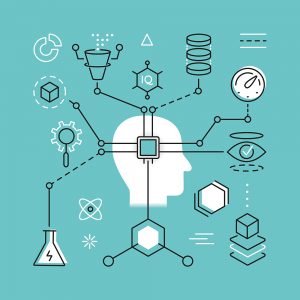
Machine Learning in Medical Applications
Machine Learning as we know is an area of artificial intelligence that provides machines an ability to predict the accurate outcome without being explicitly programmed for the same. Such a system learns from previous data and experiences to accurately predict the outcome. All the fancy technology applications of modern day including self-driving cars, speech recognition, web search, improved understanding of the human genome etc are based on machine learning. Machine learning is so ubiquitous today that we sometime don't even realize that we are using machine learning application. Like for example most of the search engines on which we surf internet use machine learning!

Medical field is one application area that heavily relies on data. For example for proper diagnosis of patients', doctors need lab results, disease history, family history, and secondary data like socioeconomic background, exposure and what not! Therefore machine learning is not only an effective technology for medical applications rather it is quite a necessity today. Not to mention, most of the medical breakthroughs come from years of research on tons and tons of data. Machine learning could be a very powerful tool in analyzing this data and in making accurate predictions. In a nutshell, healthcare sector highly depends upon data. Past years' data collected from physicians, patients and clinics could be used to improve the healthcare. Here are few specific examples of machine learning in healthcare.
- Disease Identification/Diagnosis: The identification of diseases and diagnosis for ailments is primary area where machine learning is being employed. Deep learning in oncology where researchers are training the algorithm for recognizing cancerous tissues is one such example. Another example is where facial recognition is used with machine learning to diagnose rare genetic disease.
- Personalized Treatment: On the basis of individual's health data which can be paired with predictive analysis can be more effective for personalized treatment of diseases. Based on genetic information and symptoms risks of diseases can also be reduced to some extent. There is a paper published in McGill Journal of Medicine in June 2018 where deep learning is used for the treatment of depression in patients.
- Drug Discovery/ Manufacturing: Biological factors and environmental factors change with each passing day. So, the effect of bacteria and viruses also change. Therefore machine learning can help in drug discovery with increased success rate.
- Radiology and Radiotherapy: Google's DeepMind Health is currently working with University College London Hospital (UCLH) on developing machine learning algorithms which are capable of detecting the difference between cancerous tissues and healthy tissues. By detecting cancer tissues at early stage one can improve the radiation treatments.
- Robotic Surgery: The da vinci Robot is a device which allows surgeons to manipulate the dexterous limbs. This can perform surgeries in tight spaces and with very fine detail which is not possible for humans to perform alone.
These are just a few broad level medical applications where machine learning is being used. But if you start reading about it more you will realize that there are endless medical applications for which machine is being explored.
By: Ms. Vaishali Gupta - Assistant Professor (CSE), Chitkara University, H.P.
References
- https://www.healthcatalyst.com/clinical-applications-of-machine-learning-in-healthcare
- https://emerj.com/ai-sector-overviews/machine-learning-medical-diagnostics-4-current-applications/
- https://www.mjmmed.com/article?articleID=34
CLICK HERE to Rate the Article |